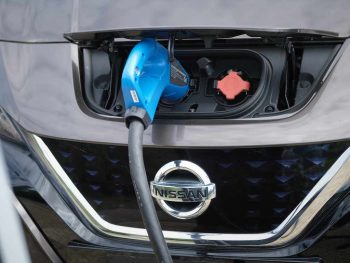Vehicle-to-grid charging could save EV homeowners £1,000 a year
UK homeowners could significantly offset their EV charging costs if bidirectional EV charging was made widely possible, a new report from intelligent power management firm Eaton finds.

V2G could help unlock widespread electric vehicle adoption
Analysis conducted for Eaton by management consultancy Baringa Partners showed that using bidirectional EV chargers – also known as vehicle-to-grid – along with renewable energy generated from assets such as rooftop solar panels, could save the typical homeowner in the region of £1,000 per year, which is approximately 90% of the average annual cost of charging a mid-sized family car.
And businesses, particularly those that run fleets, could benefit similarly from bidirectional charging, and make equally impressive savings on their energy bills.
But while the technology exists, major hurdles must be overcome before it goes mainstream in the UK and much of mainland Europe, removing barriers to investment.
Bidirectional chargers enable homeowners to feed energy into the grid as well as receive it, and this provides them with energy flexibility. It allows them to reduce energy costs by storing off-peak energy in an EV battery to use either in their home when energy is more expensive (vehicle-to-home) or sell back to the grid when demand peaks (vehicle-to-grid).
But while various trials have shown the benefits – including a three-year project between Ovo Energy and Nissan – barriers remain to wider rollout. Additionally, only a few EV models are capable of bidirectional charging at present.
Siobahn Meikle, managing director, Eaton UK & Ireland, explained the system benefits of bidirectional charging: “The grid could handle more renewable energy from assets such as commercial windfarms if it were able to pay homeowners to take energy into EV batteries via bidirectional chargers and dispatch it back to the gird to meet peak energy demand.”
She called on the Government to accelerate the integration of vehicle-to-grid charging into the electricity network by reforming the grid codes that govern the technical requirements for connecting to the electricity grid.
“This would encourage electricity suppliers and the vehicle industry to develop and market the products householders and businesses need to access cost savings, and the grid would be able to handle larger volumes of renewables,” Meikle outlined.
“Grid codes giving easy access to the distribution network to EV chargers and other flexible assets, such as solar panels, together with new tariffs and contracts for flexibility, would reflect the real-time value of energy and capacity in the power system, making Britain far more ready for the energy transition away from fossil fuels.”












